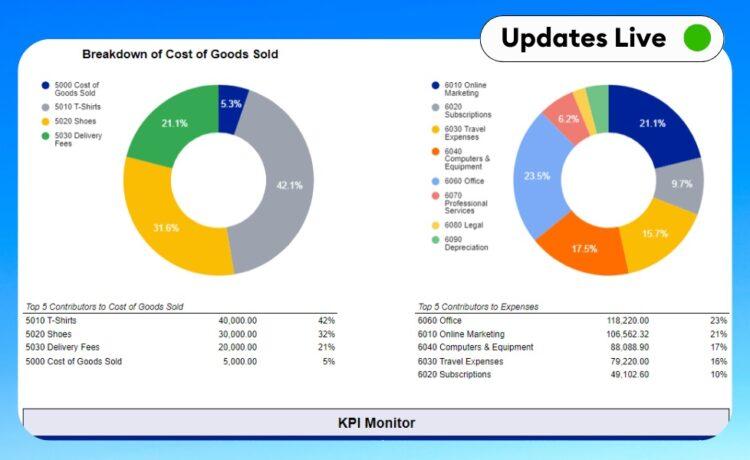In today’s information age business data rules, up-to-date and appropriate information is crucial for making decisions. Dashboards have proved crucial, allowing companies to monitor and manage their operations efficiently. The screens provide managers and executives with digitally generated images that easily reveal the business’s health.
Improve efficiency in decision making.
A dashboard is intended to facilitate decision-making in a business operation. Dashboards are instruments for collecting important data and presenting it in a manner that is appealing to the eyes for easy perusal of performance. You can also segregate data through dashboards as well as drill down. It allows users to focus on specific metrics or periods for closer examination.
Promoting data-driven strategies
Big data and data analysis have enabled companies to enjoy a better competitive edge. A dashboard for business allows companies to monitor marketing campaigns’ success, customer involvement, and product performance. The data-driven strategy enables them to continually make changes and adjust their resource allocation on the go, aiming for the highest return on investment possible.
Improve operational efficiency
Dashboards are crucial for attaining efficiency, which is paramount for business success. They offer a unified view of many operational measures, enabling managers to identify bottlenecks, improve processes, and intelligently distribute resources. For instance, a production dashboard in manufacturing can indicate real-time data about equipment up-time, defects, and production volumes.
Promote organizational transparency
Dashboards enable it as they make available data to all stakeholders. KPIs help employees appreciate their role in making their company successful. For instance, a human resources dashboard could show employee turnover rate, training completion rate, and employee satisfaction scores. The information will assist HR managers in preventing problems in advance and developing strategies that help improve the working environment.
Customization and flexibility
Customization and flexibility are some of the best things about dashboards. Dashboards can be configured by businesses for particular purposes. Whether financial data, customer analytics, supply chain metrics, or other metrics, dashboards may be set up to show this data according to department or function.
Moreover, flexibility in the dashboards enables real-time updates and modifications. Dashboards are relatively easy to modify, especially when responding to changing business priorities or incorporating new data sources. The approach’s adaptability allows the information to stay contemporary and reflect the organization’s vision.
Security and data management
The dashboards are advantageous, but security problems and data management issues emerge concerning them. Businesses should implement robust security measures for sensitive information shown in dashboards. Data integrity protection involves access control, encryption, and regular security checks.
Conclusion
Dashboards are fundamental business instruments of today. They present a concise overview of vital metrics for decision-makers who can use these insights for data-driven decisions, operations optimization, and promoting transparency in the organization. With this in mind, the dashboard remains the most vital tool that companies planning to succeed in a data-driven world must have.







